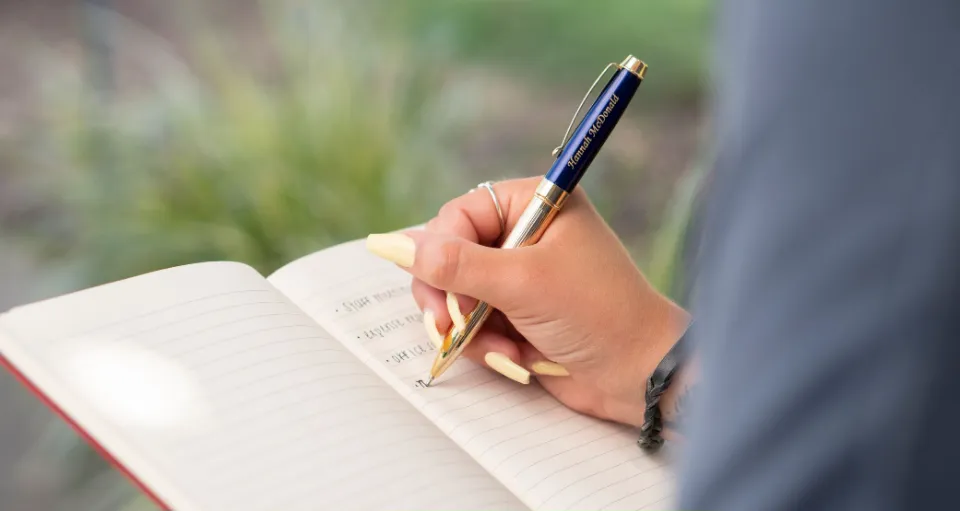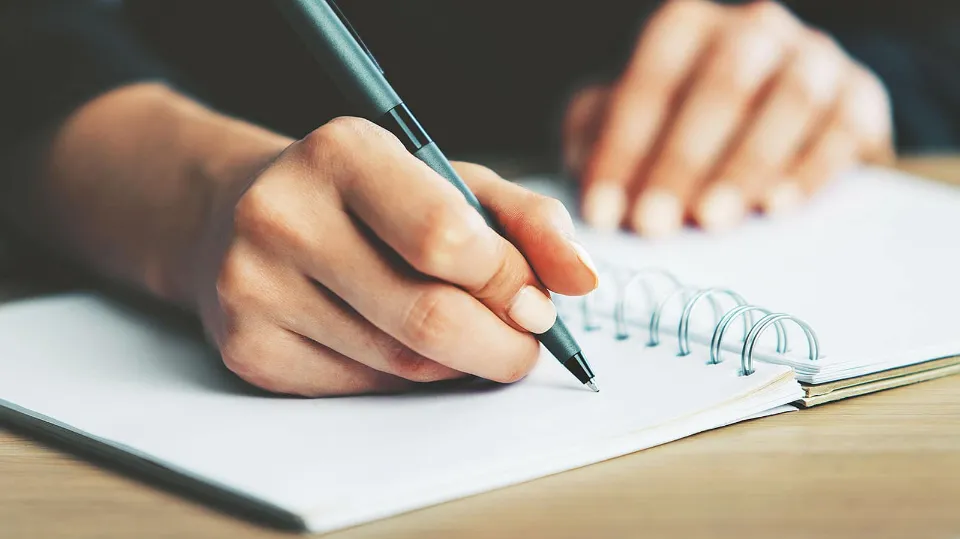How to Start Writing? 9 Effective Ways
It takes constant practice and reading other writers’ work to improve as a writer. Learn how to start writing with key tips and methods in our guide.
One of the most difficult challenges a writer must overcome is getting the first sentence down on paper. According to the theory, only those tortured souls driven by a relentless desire to write should pursue writing because it is such a difficult and heartbreaking craft.
If you want to write—for any reason—you belong here. Let me demonstrate how to begin.
Table of Contents
9 Ways to Start Writing
Nine ideas to get you writing are provided below.
1. Start in the Middle
Don’t bother making a decision right away if you don’t know where to begin. Although the first line of a book is crucial, there is no requirement that you begin with it. You never know when the first words you write will become the third chapter’s middle. Everything is fine with that. Additionally, as you progress through the narrative, you’ll gain insight into how to move backward. You might come across the ideal scene to open the book once your characters grow and the plot takes unexpected turns.
2. Start Small and Build Up
To grab the reader’s attention, you don’t necessarily need to burn a Chevrolet or murder someone on the first page. There are countless TV shows and films that use the first five minutes as a hook for major, frequently violent events that we have all seen. It is assumed that we have chimpanzee-like attention spans.

Hooks, however, are difficult to live up to; you can’t continue at that level. In addition, screen culture portrays violence more skillfully than written culture, so leave the intense violence to the cinema. It’s better to introduce a minor mystery before moving on to a larger one. The truth about a situation is always big enough to sustain someone’s attention.
Read More: What is a Subheading?
3. Incentivize the Reader
I’m not much of a first sentence person, but I am more of a first paragraph or two kind of person, and I believe those paragraphs are important. I made the error early on of trying to explain a character’s motivation or other crucial plot points, knowing they were important and assuming that the earlier they were revealed, the more the reader would appreciate it. I discovered that I was providing the incorrect response. The reader is not inquiring about the characters or plot in the opening couple of paragraphs.
4. Commit to a Title Up Front
The title you give a story is your compass, whether it ends up being the real title or just a placeholder. If you have a placeholder that doesn’t feel right, you have to ask yourself why it doesn’t feel right. And because it demonstrates where you shouldn’t go, that can also point you in the direction of where you need to be. So, trust your title, and if you get stuck, go back to it. Consider the significance of the matter. By pursuing your priorities, you might just come up with something that other people will value. When they see that title, they will draw that underground connection. You are drawn to the book for the same reasons that the reader is. Most of the time, we aren’t given the option to choose our own names, but we always give the titles of our stories thought.
5. Create a Synopsis
I always wrote a synopsis before I started writing a book. It served as a roadmap for me, allowing me to work out story issues and emotional beats in advance. Additionally, publishers demanded them from a practical standpoint.
However, the synopsis also served as a means of getting those words onto the page. Knowing that a problem you are working on has at least been partially addressed in an outline can be psychologically liberating.
6. Assemble Your Writing Tools
Assembling your writing supplies can serve as an easy justification for putting off starting a project, much like setting up your environment. Having everything ready before you begin writing shouldn’t be a concern. Try your best to assemble a few necessities and adjust as you go. Here’s what most writers find themselves reaching for during a writing session:
Writing software: Work is completed using tried-and-true programs like Word and Google Docs. But investing in inexpensive software that offers features like novel plotting and character notes can also be very beneficial. something along the lines of, say, Dabble.
A timer: You can stop worrying about the time now because of this. It works well as a psychological tool as well. Commit to writing for just twenty minutes, and there’s a 94% chance you’ll get into the groove and won’t want to stop at twenty. Additionally, you can test yourself by writing as many words as you can in a given period of time using Dabble’s free word sprint tool.
Notebook and favorite pen: Or whichever app you use to take notes while you’re out and about to brainstorm or gather random ideas.
Books on writing: Although not all of them should be within arm’s reach of your desk, there are some fantastic writing books available.
7. Allow Yourself to Write Badly
The best piece of writing advice anyone ever gave me was “Let yourself write poorly.” The pursuit of perfection terrifies writers more than anything else. When you try to write a story down on the page, it quickly devolves into something plodding, gray, and weak from the brilliant, golden, and wonderful idea it had in your head. At your dreadful work, disappointment and despair arrive to sit by your side and shake their heads. You lose valuable writing time criticizing yourself for not coming up with something unique, and eventually you produce nothing at all.
Therefore, my advice is to just write! Get something down. Later you can tweak and polish and fiddle about as much as you like, but before you can make changes, it’s vital that you at least have somethingto work with.
8. Make Up the Story as You Go
Don’t feel as though you need to start with a fully developed plot. Not all of us operate that way. In fact, many writers prefer to make up the story as they go along. If you like to plot, that’s great, but you can also sit down and write with no real plan in mind. With my first novel, Beautiful Malice, I started with the first line, I didn’t go to Alice’s funeral, and took it from there. What would transpire was a mystery to me. I was unaware of Alice’s identity or the narrator’s experience with her. Writing the book was a discovery process for me as well as the reader because I didn’t know anything.
9. Do the Opposite
Everyone is familiar with the writing tip that says we should create the kinds of stories we enjoy reading. That is excellent guidance. Good luck with that. But if you have bad luck with that, then perhaps you should try this exercise, which I call, right now, for the first time, “Do the Opposite,” in which you write the kind of story that is the exact opposite of the kind of story you hate.
Related Post: How To Write A Book About Your Life?
6 Types of Writing
As a novice writer, you have access to a wide range of writing styles. Below is a small sampling of some genres of writing you might want to explore:
- Essays: Essays are brief non-fiction pieces that describe personal experiences or offer analysis and opinion on a subject or piece of literature. Essays are a great place for new writers to start because they can be published in a variety of locations and publications.
- Blogs: Essay-like posts are a common feature of blogs, but bloggers are typically more informal and condensed than traditional essayists due to the blog format. Tumblr and WordPress are just two of the many formats and blog publishing platforms available.
- Poetry: Poetry is a fantastic writing format for those who are emotionally driven and enjoy experimenting with different ways to play with form and structure. Poetry offers a different creative outlet than other forms of writing, so many nonfiction authors and authors of traditional fiction enjoy writing it to complement their other works.
- Short stories: New fiction writers have a good format to work from when they first start out: the short story or novella. Less wordy than traditional novels, short stories are a great place to begin learning the fundamentals of fiction writing.
- Novels: When you feel you have the fundamentals down, novels are a great place to start out as a fiction writer. In novels, you have the time and room to delve deeply into complex characters or craft intricate plots. Novels can be sold through self-publishing or by shopping them around to literary agents for representation.
- Audio: A non-traditional publishing option for authors to consider is audiobooks and podcasts. A different type of challenge arises for writers when writing for an audio medium.
Read More: Why is Writing Important?
Things to Consider When Choosing a Topic to Write About
Making up your mind about what to write about can be done in a variety of ways. Your topic will depend on the form of writing you have selected or been assigned, but here are a few different ways to generate topics and premises for your writing:
- 1. Story: Whether a piece is fiction or nonfiction, a strong opening or engaging main character are good places to start. Find the creative storyline that most appeals to you after coming up with several possibilities; consider what would keep a reader interested.
- 2. Personal experience: Starting a new piece of writing by considering a personal experience is highly recommended. As a human, your memories give you a lot of material for writing because you can recall specific details about the writing’s texture and have an immediate point of view. Create a piece of writing based on one of your most memorable experiences, such as your first time riding a bike or a fun date that didn’t go as planned.
- 3. Issue: Finding ideas for non-fiction works can be as simple as considering a compelling and contentious issue in modern society. It doesn’t matter if you’re just starting out in your writing career or working full-time as a professional writer, thinking about topics that you have a particularly strong opinion or point of view on can help you come up with writing that is highly persuasive.
Final Thoughts on How to Start Writing
Writing a book is a monumental task, but very doable once you have momentum and a compliant muse!
It’s time to establish a regular reading habit if you don’t already have one. After all, if you want to be great, you must understand what greatness is.
the problem now is. You are unable to read as you once did, allowing your thoughts to wander into fantastical realms as the story sweeps you up. You now need to read like a writer. This means actively noticing how the writer:
- acknowledges the genre’s cliches.
- character archetypes are employed.
- creates a character arc.
- creates a sense of character by choosing particular details.
- uses specifics to convey emotion.
- Etc.
Also Read:
- What Should Be the First Step in the Writing Process?
- How to Make Your Writing Sound More Professional?
- How to Manifest Something by Writing It Down?
FAQs
Can Writing Be Self-Taught?
Whether you write fiction, poetry, plays, or screenplays you can absolutely teach yourself how to be a creative writer.
How to Start Writing as a Hobby?
Write about anything that interests you, whether it’s a specific topic or just your thoughts and feelings.
